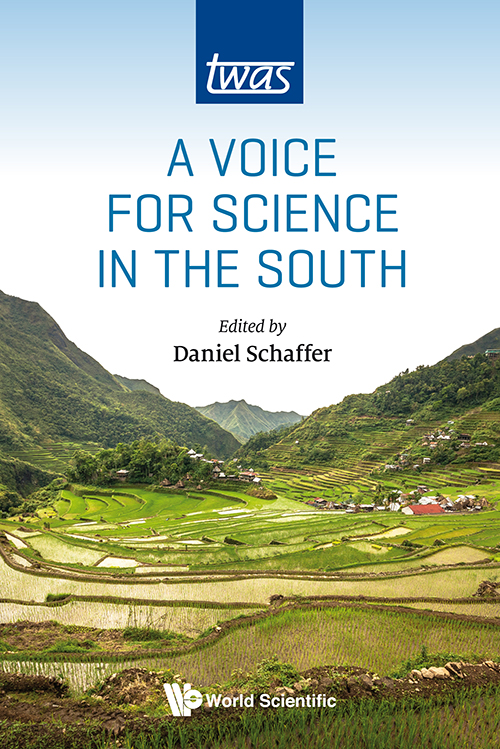Thirty years after the first TWAS General Meeting, a new book explores the Academy's past and its future in a series of essays by TWAS leaders and prominent Fellows from the developing world.
 "A Voice for Science in the South" serves as a window into one of the most historically significant changes of our era: how nations once trapped in poverty have invested in science, technology and education to drive economic development and improve human conditions.
"A Voice for Science in the South" serves as a window into one of the most historically significant changes of our era: how nations once trapped in poverty have invested in science, technology and education to drive economic development and improve human conditions.
The book "will serve as a lasting reminder of the commitment that motivated Abdus Salam, Paolo Budinich and the others who founded the Academy and guided its work for the first 30 years," writes TWAS President Bai Chunli in the Foreword. "Though the world may change, their ideals remain constant. At the same time, this volume reminds us of the hard work and creativity that will be required to build on their legacy, so that TWAS remains an effective leader and advocate for science in the service of human progress."
"A Voice for Science in the South" was edited by Daniel Schaffer and published by Singapore-based World Scientific. It is being released at the 26th TWAS General Meeting, held this year in Vienna, Austria. [Visit World Scientific to learn about ordering the book.]
The book was written to commemorate the 30th anniversary of both TWAS's founding in 1983 and its first General Meeting. That meeting was held in July 1985 in Trieste, Italy, the Academy's headquarters city; it attracted messages of support from a range of world leaders at the time, and was attended by United Nations Secretary-General Javier Pérez de Cuéllar and other global science leaders.
See more news from the 26th TWAS General Meeting in Vienna, Austria
In an introductory essay, Schaffer reflects on the vision and commitment of Salam, the Pakistani physicist who founded the International Centre for Theoretical Physics (ICTP) in 1964 and won the Nobel Prize in 1979. Schaffer served as TWAS public information officer for nearly 15 years before retiring 2012.
Following that reflection are essays by four pioneering TWAS leaders: former Presidents José I. Vargas of Brazil, C.N.R. Rao of India and Jacob Palis of Brazil, and longtime Executive Director Mohamed H.A. Hassan of Sudan.
"A Voice for Science in the South" also includes essays by:
- TWAS Fellow Ana María Cetto Kramis of Mexico, who has played a globally influential role in supporting women in science;
- TWAS Fellow Adnan Badran, who has served as prime minister of Jordan during a distinguished career of scholarship, political engagement and diplomacy;
- Zakri Abdul Hamid, a TWAS Fellow who serves as science adviser to the government of Malaysia, a member of the UN Secretary-General's Science Advisory Board, and founding chair of the Intergovernmental Science-Policy Platform on Biodiversity and Ecosystem Services;
- Keto Mshigeni, a TWAS Council vice president and one of Africa's pre-eminent natural scientists, known for his influential research into seaweed and mushrooms as important food sources;
- TWAS Fellow Yu Lu, a world-renowned Chinese physicist who served as the first permanent member of the ICTP scientific staff;
- Roseanne Diab, a TWAS Fellow and executive director of the Academy of Sciences of South Africa; and
- TWAS Young Affiliate Maria Corazon A. De Ungria of the Philippines, head of the DNA Analysis Laboratory at the University of the Philippines.
Each writer in these essays traces a story of how personal success as a researcher led to engagement and work with TWAS. They focus simultaneously on their own evolution as science leaders, and the rise of TWAS as a leader in a global movement that has profoundly changed the world.
At the same time, the essays take a sharply focused look at TWAS's current role in the world and at the growth and change that will help it to remain an influential global advocate for science in the world's least-developed nations.
Edward W. Lempinen

